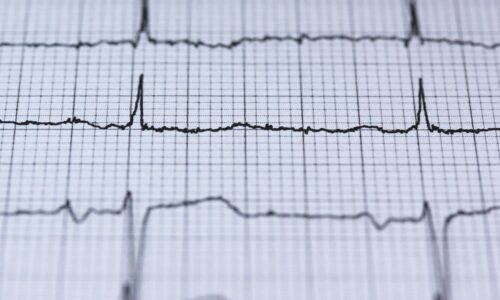What is the difference between heart attack and heart failure? |

The terms heart attack and heart failure are often confused. While there is some overlap in both their symptoms and underlying cause, they are really two distinct entities.
Heart attack
A heart attack occurs when the flow of blood to an area of the heart is blocked. Without a supply of oxygen-rich blood, the heart muscle dies. Also known as myocardial infarction or MI, the Centers for Disease Control reports that 735,000 Americans experience heart attacks each year.
Most heart attacks develop in conjunction with coronary artery disease (CAD). In CAD, a substance known as plaque gradually builds up in the arteries that supply the heart. This disease process is known as atherosclerosis. The combination of plaque formation along with a blood clot is the typical reason for blockage of the coronary artery causing the heart attack.
Prior to the complete blockage of a coronary artery, most people with narrowed coronary arteries will experience a symptom known as angina. Angina occurs when the heart muscle is not being supplied with enough oxygen. It is usually described as a pressure or squeezing discomfort in the chest. This discomfort can also be felt in the arms (usually left), neck, or jaw. Usually, this pain goes away with rest or after taking a medication to help improve blood flow to the heart muscle.
With complete blockage and death of the heart muscle (he
art attack) more severe symptoms typically occur. These symptoms include:
- Chest discomfort in the center of the chest that lasts for more than a few minutes, or goes away and comes back. The discomfort can feel like uncomfortable pressure, squeezing, fullness, or pain.
- Discomfort in other areas of the upper body including one or both arms, the back, neck, jaw, or stomach.
- Shortness of breath, often occurring along with chest discomfort.
- Other symptoms may include breaking out in a cold sweat, nausea, or light-headedness.
A heart attack is a medical emergency causing over 370,000 deaths in the U.S. each year.
Heart Failure
When the term “failure” is applied to specific organs, e.g. kidney failure, liver failure, heart failure, etc., it conjures up thoughts of a final or terminal phase in the function of the organ. In the case of heart failure, however, it does not mean that the heart has stopped working altogether; instead, it means that the heart’s pumping power is weaker than normal. To compensate, the main pumping chambers of the heart (ventricles) become larger and the heart muscle thickens in order to maintain normal blood flow to the body. According to the American Heart Association, around 7.5 million Americans have some degree of heart failure which is one of the most common reasons for hospitalization among those over the age of 65.
One of the most common symptoms of heart failure is the buildup of fluid in various parts of the body. When this occurs, it is called congestive heart failure (CHF). Symptoms of CHF vary, depending on whether the left or right chamber of the heart is primarily involved. With left sided heart failure, blood and fluid back up into the lungs causing shortness of breath, difficulty breathing when lying flat, and fatigue. With predominant right sided failure, blood and fluid back up causing swelling in the abdomen (ascites) and in the legs and feet (edema).
The most common reasons for developing heart failure include:
- Coronary artery disease which results in diminished blood flow to the heart muscle and heart damage.
- Heart attack with the development of “scar tissue” which interferes with the normal pumping action of the heart.
- High blood pressure which causes the heart to have to pump against higher resistance. Uncontrolled high blood pressure increases the risk of developing heart failure by two to three times.
- Disease or deformity of the heart valves. When the valves do not function normally, the heart muscle has to pump harder to keep the blood flowing as it should.
- Heart muscle disease (cardiomyopathy). There are a number of causes for heart muscle disease including infections (e.g. viral myocarditis), alcohol abuse, and the toxic effect of certain medications including chemotherapy drugs.
- Congenital heart defects. These are problems affecting the heart’s chambers or valves that are present at birth. If the heart and its chambers don’t form correctly, the healthy parts have to work harder, which in turn may lead to heart failure.
In most instances, a heart attack is a life-threatening condition requiring emergency medical treatment. Likewise, when heart failure results from an acute event, such as a heart attack, immediate treatment is usually required. More often, however, heart failure, such as when it occurs in association with chronic hypertension, becomes more of a chronic, long-term condition.
Sources for article:
What is heart failure? from the American Heart Association
What is heart attack? from the National Heart, Lung, and Blood Institute
If you have any more questions just Ask Hanna, our health advisors are here to help.
Image: ©Shutterstock / Africa Studio








